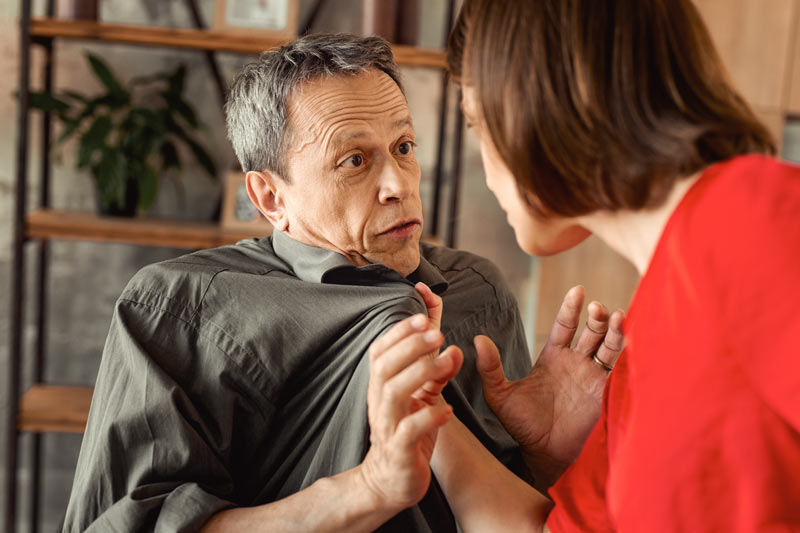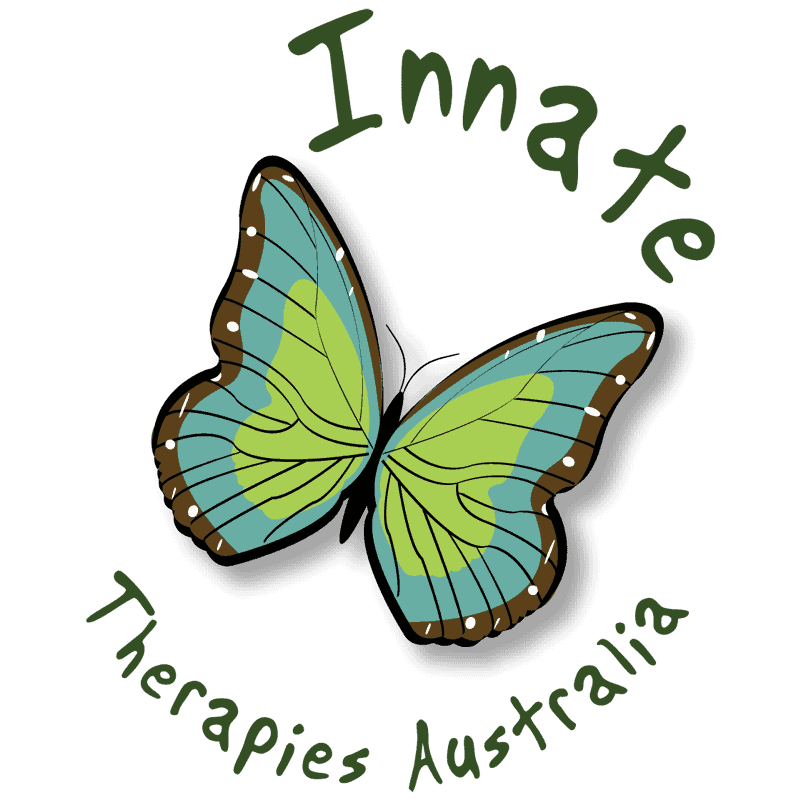Domestic Violence – Do you need support after DV?
Domestic violence is a deeply troubling issue that affects countless individuals and families, often leaving lasting emotional and psychological scars. The journey to recovery after experiencing domestic violence is complex and multifaceted. While the immediate priority is often to escape the abusive situation, ongoing support is essential for long-term healing and rebuilding a stable, fulfilling life.
This blog will discuss why support after domestic violence is important. It will cover the types of support available. We will also explain how Innate Therapies can help survivors on their recovery journey.
Understanding the Impact of Domestic Violence
Domestic violence can have severe and far-reaching impacts on survivors. These effects go beyond physical harm and can significantly impact a person’s emotional, mental, and social health. Here are some common consequences of domestic violence:
Emotional and Psychological Trauma: Survivors may experience anxiety, depression, post-traumatic stress disorder (PTSD), and other mental health issues. The emotional abuse and manipulation can undermine self-esteem and sense of worth.
Physical Health Problems: Chronic stress and trauma from abuse can lead to physical health issues, including chronic pain, headaches, gastrointestinal problems, and other stress-related conditions.
Social Isolation: Abusers often isolate their victims from friends and family, making it challenging for survivors to seek support and maintain social connections.
Economic Hardship: Financial abuse and the disruption caused by leaving an abusive relationship can lead to economic instability, including difficulties with employment and financial independence.
Understanding these impacts is vital for recognising the need for ongoing support and intervention.
The Importance of Support After Domestic Violence
After escaping an abusive relationship, survivors often face the challenge of rebuilding their lives. Continued support is crucial for several reasons:
Emotional Healing: The psychological effects of domestic violence can be profound and long-lasting. Support helps survivors process their trauma, rebuild their self-esteem, and develop healthy coping mechanisms.
Safety and Stability: Even after leaving an abusive relationship, survivors may need assistance with safety planning, legal issues, and finding stable housing. Support services can help ensure their continued safety and stability.
Rebuilding Independence: Survivors may need help with financial planning, job training, and other resources to regain their independence and self-sufficiency.
Navigating Systems: The complexities of legal, healthcare, and social systems can be overwhelming. Support services provide guidance and resources to help survivors navigate these systems effectively.
Types of Support Available
A variety of support services are available to help survivors of domestic violence. Each type of support helps with different parts of recovery. It can be very important for people to heal and rebuild their lives.
1. Counselling and Therapy
Individual Therapy: Provides a safe space for survivors to explore their trauma, develop coping strategies, and work towards emotional healing. Therapists specialising in trauma and domestic violence can offer targeted support.
Group Therapy: Allows survivors to connect with others who have experienced similar situations. Sharing experiences and strategies in a group setting can foster a sense of community and reduce isolation.
Family Therapy: For survivors looking to repair or improve relationships with family members affected by the abuse, family therapy can be beneficial.
2. Legal Assistance
Protective Orders: Legal advocates assist survivors in obtaining restraining or protective orders to ensure their safety from the abuser.
Custody and Divorce: Legal support is crucial for navigating custody disputes, divorce proceedings, and other legal matters that arise after leaving an abusive relationship.
Victim Advocacy: Advocacy services help survivors understand their legal rights and access necessary resources.
3. Medical and Psychological Care
Medical Attention: Ongoing medical care may be necessary for physical injuries or health issues resulting from the abuse.
Mental Health Services: Accessing mental health services for conditions such as PTSD, depression, and anxiety is essential for recovery.
4. Shelters and Housing
Emergency Shelters: Provide immediate safety and temporary housing for those escaping an abusive situation.
Transitional Housing: Offers longer-term support while survivors work towards independent living.
Permanent Housing Assistance: Programs help survivors secure stable, permanent housing.
5. Financial Support
Emergency Financial Aid: Provides immediate assistance for needs such as food, transportation, and medical care.
Job Training and Employment Support: Offers assistance with job training, resume building, and finding employment.
Financial Counselling: Helps survivors manage their finances and develop strategies for economic independence.
6. Support Groups and Community Resources
Support Groups: Offer a space for survivors to connect with others who understand their experiences and provide emotional support.
Community Organisations: Local agencies and non-profits often provide additional resources, workshops, and advocacy for survivors.

How Innate Therapies Can Support Survivors
Innate Therapies specialises in providing therapy and counselling services, and can play a significant role in supporting survivors of domestic violence. Here’s how Innate Therapies can assist:
1. Trauma-Informed Counselling
Innate Therapies offers trauma-informed counselling, which acknowledges the widespread impact of trauma and prioritises safety, trustworthiness, and empowerment in the therapeutic relationship. Our therapists work to create a supportive environment where survivors can explore their experiences, process their emotions, and develop coping strategies.
2. Individual and Group Therapy
Individual Therapy: Our skilled therapists provide one-on-one support to help survivors navigate their trauma, work through emotional challenges, and build resilience.
Group Therapy: We offer group therapy sessions where survivors can connect with others who have experienced similar situations. Group therapy fosters a sense of community and shared understanding, which can be incredibly healing.
3. Safety and Support Planning
Innate Therapies can assist survivors in developing comprehensive safety and support plans. This includes creating strategies for managing ongoing risks, accessing legal resources, and finding stable housing and financial support.
4. Holistic Approaches
We incorporate holistic approaches into our therapy practice, addressing the emotional, physical, and psychological aspects of recovery. Mindfulness, art, and body therapies can enhance traditional talk therapy and improve overall well-being.
5. Collaboration with Community Resources
Innate Therapies collaborates with local community resources, shelters, and advocacy organisations to ensure that survivors have access to comprehensive support services. We can help connect clients with additional resources and services, including legal aid, financial assistance, and housing support.
6. Empowerment and Skill Building
Our therapy services focus on empowerment and skill-building. We help survivors gain the tools and confidence to rebuild their lives. This includes supporting personal growth, self-esteem, and independence.
How to Access Support from Innate Therapies
If you or someone you know is seeking support after experiencing domestic violence, here’s how to access services from Innate Therapies:
Contact Us: Reach out to Innate Therapies to schedule an initial consultation. We offer a confidential and supportive space to discuss your needs and goals.
Explore Therapy Options: We offer a range of therapy options, including individual and group therapy. During the initial consultation, we will discuss the best approach for your unique situation.
Develop a Support Plan: Together, we will create a personalized support plan that addresses your emotional, psychological, and practical needs.
Utilize Additional Resources: We can help connect you with additional resources, such as legal aid, financial support, and housing assistance, as needed.
Ongoing Support: Healing is a journey, and we are here to provide ongoing support and guidance throughout your recovery process.
Strategies for Self-Care and Recovery
In addition to professional support, self-care is a crucial component of healing after domestic violence. Here are some strategies to prioritise your well-being:
– Practice Mindfulness and Relaxation: Engage in mindfulness practices such as meditation, deep breathing, and yoga to manage stress and promote emotional well-being.
– Engage in Activities You Enjoy: Pursue hobbies and activities that bring you joy and fulfilment to help rebuild your sense of self and purpose.
– Establish a Routine: Creating a daily routine can provide structure and stability, which can be particularly important during the recovery process.
– Set Boundaries: Protect your emotional and physical well-being by setting boundaries with others and prioritising your needs.
– Seek Professional Help: Regularly attending therapy or counselling sessions can provide ongoing support and help you navigate the recovery process.
Recovering from domestic violence is a challenging and multifaceted journey. While escaping an abusive relationship is a significant step, ongoing support is essential for healing and rebuilding a fulfilling life. Understanding the various forms of support available, accessing resources, and prioritising self-care are crucial components of recovery.
Innate Therapies is dedicated to providing comprehensive and compassionate support for survivors of domestic violence. Through trauma-informed counselling, individualised support plans, and collaboration with community resources, we are here to help you navigate your recovery journey and rebuild your life.
If you need support after experiencing domestic violence, reach out to Innate Therapies to explore how we can assist you. Your well-being and healing are our top priorities, and we are committed to supporting you every step of the way.

